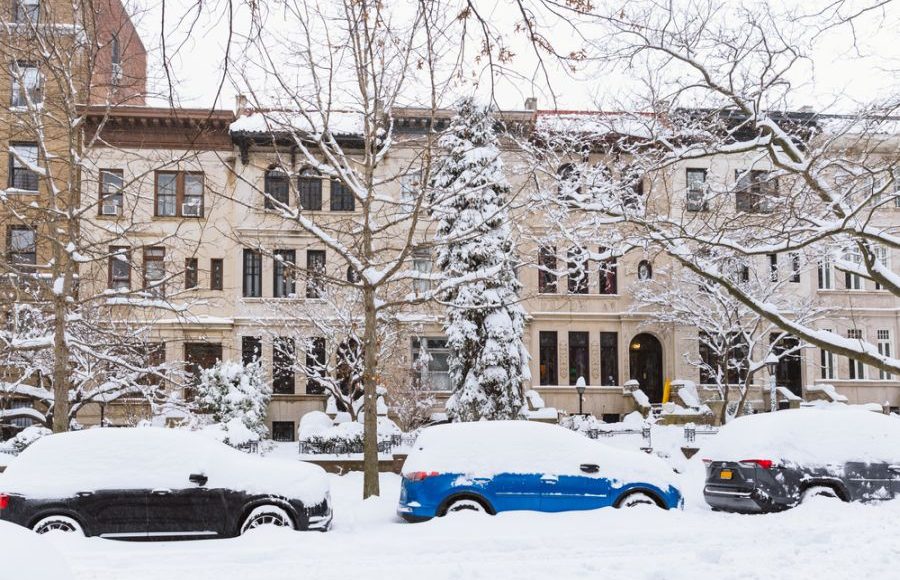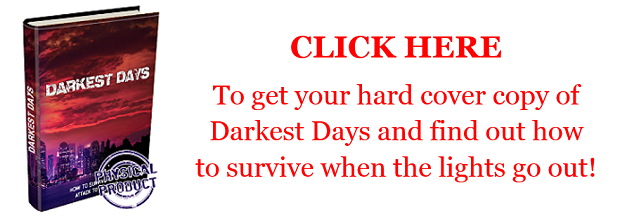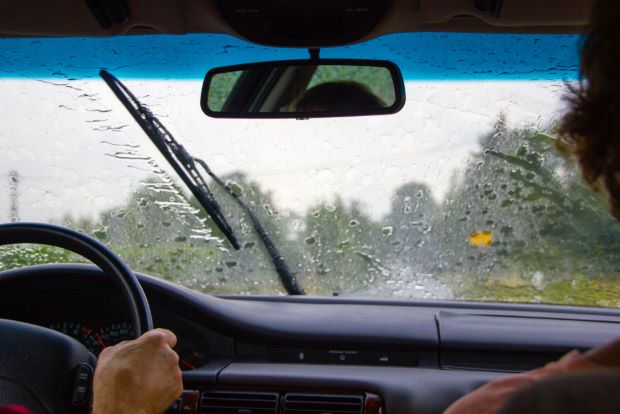The freeze of February 2021 caught us all by surprise, especially in Texas. While winter storms and freezing temperatures are not uncommon in some parts of the country, they certainly aren’t in the Lone Star State. It’s safe to say that the residents of Texas weren’t prepared for that cold snap when it came. Their home HVAC systems don’t even have enough capacity to provide the heat that such a situation requires.
That was supposed to be a “once in the 500-year event,” but a similar event happened 50 years earlier. In august of the same year, Houston experienced its third “500-year” flood in three years. Other parts of the country have suffered through other severe weather events, including New Orleans being hit by Hurricane Ida 20 years to the day after Hurricane Katrina nearly demolished the city.
The Climate Change crowd quickly attributes these events to climate change, using them as “proof” that it is happening. But in reality, there is little understanding of why these extreme weather events are happening. There has always seemed to be some randomness to them, explaining why they are referred to as once in 500-year events. But it also appears that they are occurring more frequently.
If these events occur more frequently than before, it seems the vast majority of people out there are in trouble, as they’re not prepared for anything going wrong. But what about us; what about the prepping and survival community?
I’ve noticed something a bit disturbing since the beginning of COVID; that is, preppers who don’t accept the disasters that are happening as truly being disasters. We’ve had a pandemic, yet many preppers have acted all along like it’s all phony. Forgive me if I’m wrong, but it would seem to me that the community of people who are committed to protecting their family from anything would be the first to take every possible precaution to protect their family from a disease that “might” kill them, regardless of how small the perceived threat.
Don’t get me wrong here; I understand that some people have issues with vaccines. My son is allergic to some vaccines, so we take extra precautions with him. But that doesn’t mean that I throw the baby out with the bathwater. Just because he can’t get the flu shot doesn’t mean that I don’t get mine every year. Whether or not one receives a vaccine is a personal decision, but in my mind, we preppers always fall on the side of safety in making our decisions; whichever course we decide is the safer one to take.
What about the shortages that hit our stores in 2020? I saw preppers complaining about not finding food, toilet paper, and other items when they had those same items in their stockpiles. Yet isn’t that just the sort of scenario that we stockpile for?
Something similar happened in the February freeze, where preppers weren’t using their emergency heating system or breaking out their emergency water supplies, even though the power was out and there wasn’t any water coming out of the faucet.
It seems to me there’s some disconnect between our understanding of a “disaster” and the disasters which are happening. Perhaps it’s because we’re all expecting one of the various TEOTWAWKI events that we all love to write about. But as I’ve stated before, we’re much more likely to be faced with a natural disaster or another regional event than we are one of those TEOTWAWKI events.
While we should be prepared for the big one, we must also be ready when Mother Nature knocks our neighborhood, town, region, or state on its backside.
Nothing has happened in 2020 or 2021, which should have caused any prepper a problem. While they would have been an inconvenience, our preps should have made it much easier for us to get through the last year and a half than it was for everyone else. So why hasn’t that been so?
I can understand the desire to maintain our stockpiles once we’ve created them. Once money gets into my savings account, it almost takes an act of God to get it back out. Just ask my wife; she’s tried. I can be just as bad with our stockpile as well. Even so, the last year has seen us using food and other supplies out of our stash when we couldn’t get those things in the store. But, and this is very important, we keep track of what we’ve taken and kept our eyes open, so we can restock those items as soon as they become available again.
It seems that there is no question that we are going to continue seeing disaster after disaster coming at us. Therefore, I think it’s time that we revise our thinking. Rather than wondering what big catastrophe is going to strike and preparing for it, we should think about the next disaster that could strike and check to make sure that we’re ready for it. In other words, we should be acting as if we are assuming that disaster is coming and we’re working on our last-minute preparations for it. That needs to become the new prepping.
Granted, we don’t know that any of those disasters will happen, but it is a lot safer to assume they are than to think they aren’t. It’s no different than getting ready for a hurricane as soon as hurricane season rolls around, just because you live in a hurricane zone. Maybe it won’t hit you this year, but the possibility is there.
With that in mind and winter just around the corner, it’s time to start getting ready for the February winter storm of 2022, especially if you live in the warmer part of the country and aren’t prepared for freezing temperatures.
So How do We Prepare for that Storm?
Those who live in the North are accustomed to winter storms and are likely already prepared for them. Even people who aren’t preppers tend to live in a way that seems much more prepared, simply because they live through snowstorms every winter. But what about the rest of us, specifically those who live in the South?
Power
We already know that our electric power systems aren’t up to the task. The Texas grid was a mere four minutes away from going down all the way, a problem that would have taken months to rectify. There’s no way that the issues which led up to that moment have already been dealt with.
While Texas was the worst off, much of the country wasn’t in much better shape. With our increased dependence on wind and solar power, along with a smaller margin of reserve power capacity, the rest of the states weren’t all that far behind Texas. With so much of the country affected by the storm, conditions couldn’t get the extra electricity needed from other states. Texas received all the attention, but the whole country was hurting for power.
Click here to find out how to survive when the lights go out!
The only solution to a general power outage is having our means of generating electrical power. While we preppers tend to go for solar and wind power, just like the radical environmentalists do (but for different reasons), our off-grid systems may not be providing all that much power for us in the event of another huge freeze like that. In that case, it would be a good idea to have a portable generator and a goodly supply of gasoline on hand.
Heat
Besides the loss of electrical power, the biggest problem we face during a big freeze is heating. As I mentioned earlier, the building code doesn’t require as much heating capacity from furnaces installed in homes in the South as it does for homes in the North. This is something that most people are unaware of. They expect their furnace to keep them warm, but those furnaces are designed to assume that the temperature won’t drop below a certain point.
While many preppers in the northern part of the country have installed wood-burning stoves in their homes, many of the preppers in the South haven’t, as it rarely gets cold enough to need them. The assumption is that it won’t get hard enough to require that heating system if the power goes out. As we saw in February, that’s a dangerous assumption.
Adding a wood-burning stove to a home is a relatively inexpensive investment and one that can save your family’s life. Several hundred people died of hypothermia during the February freeze, something that could have been avoided. Don’t expect the government to take care of you, plan on taking care of yourself.
Clothing
The other part of keeping ourselves warm is to have warm clothing on hand. Having lived in South Texas, I’ve seen people put on ski parkas and scarves when the temperatures drop below 60°F. People who have lived in these warmer climates find it much easier to deal with the heat than coping with the cold.
That means that these people need to wear even more warm clothes when it is cold than people who live up north. Yet few have much in the way of warm clothing to wear. They mostly stay indoors during cold weather and depend on their homes’ heating system to keep them warm. But if they are going to be prepared, they have to have enough warm clothing to keep them warm, even without the heat.
Most don’t want to spend that money because they are not likely to use it. But when we look at that warm clothing as prepping supplies rather than wardrobes, things change. Then it makes sense to spend that money, especially if those clothes can be bought used or on sale, than otherwise.
Water
Most of Texas was either without water or very little water during the freeze. That was partially due to water lines not being buried very deep in Texas, partly due to the problems with the power grid, and partially due to the backup generators at the water treatment plants not working.
Diesel generators, the most common sort used for powering infrastructure, obviously use diesel fuel. But the paraffin in diesel fuel tends to solidify in cold weather, falling out of the fuel. This can cause problems such as the injectors in the generator’s engine getting clogged. The solution is to add cold-weather additives to the fuel, which might not have happened in Texas.
Using an additive is easy, but it’s not like they can dig up all the water lines and bury them deeper. So there’s a good chance that there will be water shortages again, any time there’s another big freeze. As part of our stockpile, we need to be sure that we have plenty of water on hand because we may not be able to count on rainwater capture or even a well in these circumstances.
Food
Food should be the least of our worries as preppers, as we mostly start by stockpiling food. But we need to be sure that we have some usable means of cooking that food without power. If the power goes out, we can’t even count on a gas stove for cooking on.
This isn’t the time to be thinking about a solar oven, but a barbecue grille works well. As most of us already have a barbecue grille of some sort, all we need to do is make sure we have plenty of fuel to go with it. Keep in mind that this means cooking outdoors, as it is not safe to bring that grille indoors to use it. Another thing to keep in mind is that while you can use ordinary pots and pans for cooking on a grille, doing so will damage any enamel on them. You’re going to be much better off using either cast iron or stainless steel.









Bill | October 6, 2021
|
Bill, you make some very good points! You give us all some very good things to re-think about. I for one have reassessed my food pantry. I love canned soups and have many in the pantry, however when the time came and the store shelves were empty I nor no one really ate any canned soup! So now I donated the majority of them to a food pantry and have added more pasta, rice and beans along with home canned, store bought and frozen broth. We found that we did much more home cooking than quick fix soups. Yea I guess in a true TEOTWAWKI event you will eat anything, but in reality we will still cook.
Stay safe and God Bless…
Ben | October 6, 2021
|
Mr. Bill, i disagree with you (respectfully) on covid and vaccines. Preppers stay on the safe side of thing, yes, but not through ignorance. We prep based off the events that historically and scientifically are likely. Scientifically, maybe the flu shot is good for you and not your son, but the flu shot has been here and studied like…forever. There is to much scientific conflict with this new “vax”. It indeed may NOT be fine for you and not your son. The adverse affects can be shed onto other people. Not trying to be a troll, I’m just saying, please don’t ” Borderline Indorse” the vax if we really don’t know it full adverse effects. Thank you for all the good prepping tips you share!